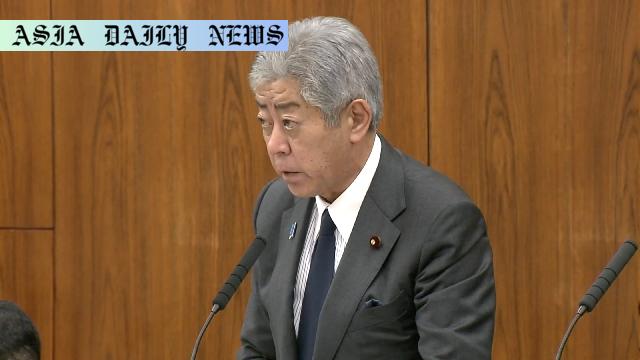Japan protests: Tokyo demands explanation after Israeli forces fire warning shots at its diplomatic delegation in the West Bank.
- Japan protests Israeli soldiers firing warning shots at a diplomatic delegation in the West Bank.
- Foreign Minister Iwaya Takeshi confirms Japan’s demands for investigation, accountability, and preventive actions.
- Israel acknowledges lack of coordination and commits to sharing investigation results.

Introduction to the Diplomatic Incident
Japan has lodged a formal protest against Israel following an alarming incident involving its diplomatic delegation in the occupied West Bank. On Wednesday, in the city of Jenin, Israeli forces reportedly fired warning shots toward the Japanese delegation. This act, which occurred without prior coordination or information-sharing, has raised serious concerns about diplomatic safety and procedures in volatile regions. Although no injuries were reported, the event signifies deeper issues in international relations and operational methods in conflict zones.
Japan’s Response and Demands
Japan’s Foreign Minister, Iwaya Takeshi, addressed the matter in the Diet on Thursday, emphasizing the grave nature of the event. He acknowledged that while no harm was done to the diplomats, the incident is unacceptable and requires thorough investigation. Through diplomatic channels, Japan has strongly urged the Israeli government and military to provide a full explanation of the incident. Furthermore, Japan is insisting on measures to prevent such occurrences in the future. This underscores the country’s commitment to the safety of its officials and the importance of accountability in international relations.
Israel’s Acknowledgment and Response
In response, Israel has expressed its regret over the incident. Acknowledging the lack of coordination with Palestinian authorities prior to the Japanese delegation’s visit, Israeli officials have stated their commitment to investigating the matter thoroughly. The Israeli side has promised to communicate the findings transparently to Japan. This response, while measured, underscores an ongoing issue of coordination and situational awareness in the West Bank, a region fraught with tension and conflict.
A Closer Look at the West Bank Environment
The occupied West Bank, particularly cities like Jenin, remains a focal point of Israeli-Palestinian tensions. The region has seen frequent clashes, military operations, and heightened security measures. In this context, diplomats and international delegations face unique challenges that necessitate clear communication and coordination between involved parties. The absence of such coordination, as seen in this case, can lead to misunderstandings and potentially dangerous outcomes. The recent incident highlights the fragility of diplomatic missions in conflict zones, demanding heightened procedural clarity and mutual respect for safety protocols.
Implications for International Relations
Japan’s strong diplomatic response highlights the importance of mutual respect and adherence to international norms governing the safety of diplomats. This incident, while resolved without injuries, serves as a cautionary tale for all nations involved in operations within conflict zones. It also underscores the importance of transparency and accountability in addressing such issues promptly. More broadly, the incident reflects on the delicate nature of Japan-Israel relations, which may require bolstering efforts to ensure cooperation and mutual understanding moving forward.
Conclusion: A Call for Greater Diplomacy and Coordination
The warning shots fired at Japan’s diplomatic delegation in Jenin are a stark reminder of the complexities involved in operating within conflict areas. Both Japan and Israel now face the challenge of not only resolving this incident to mutual satisfaction but also strengthening diplomatic practices to prevent future occurrences. By addressing the root causes of this incident, both nations can work toward fostering a safer and more cooperative international environment, even in regions of heightened tension.



Commentary
The Importance of Diplomatic Safety
The recent incident involving Japan’s diplomatic delegation in the West Bank is a stark reminder of the inherent risks diplomats face in conflict zones. Safety should always be paramount, and this situation highlights the need for improved protocols to protect international representatives. Japan’s firm protest sends an unequivocal message: such events are unacceptable and require immediate rectification. By addressing these concerns robustly, Japan exemplifies its commitment to safeguarding its citizens and their missions abroad.
The Critical Role of Coordination in Conflict Zones
Coordination is the cornerstone of effective diplomacy, particularly in volatile regions like the West Bank. Israel’s acknowledgment of the lack of information-sharing prior to the Japanese delegation’s arrival is a step in the right direction. However, it also exposes systemic flaws in managing international visits within contentious territories. Strengthening communication channels and fostering collaborative measures between all involved parties can mitigate such risks. This incident must serve as a lesson for all nations operating in similar circumstances.
Broader Implications for Japan-Israel Relations
While this incident has drawn attention to security issues, it also presents an opportunity for Japan and Israel to deepen their diplomatic engagement. By working together to investigate and address the causes of the event, they can strengthen their bilateral relationship. Transparency, accountability, and proactive preventive measures will be essential in rebuilding trust and ensuring smoother collaborative efforts in the future. Through constructive dialogue, both nations can turn this challenge into an opportunity for growth and cooperation.